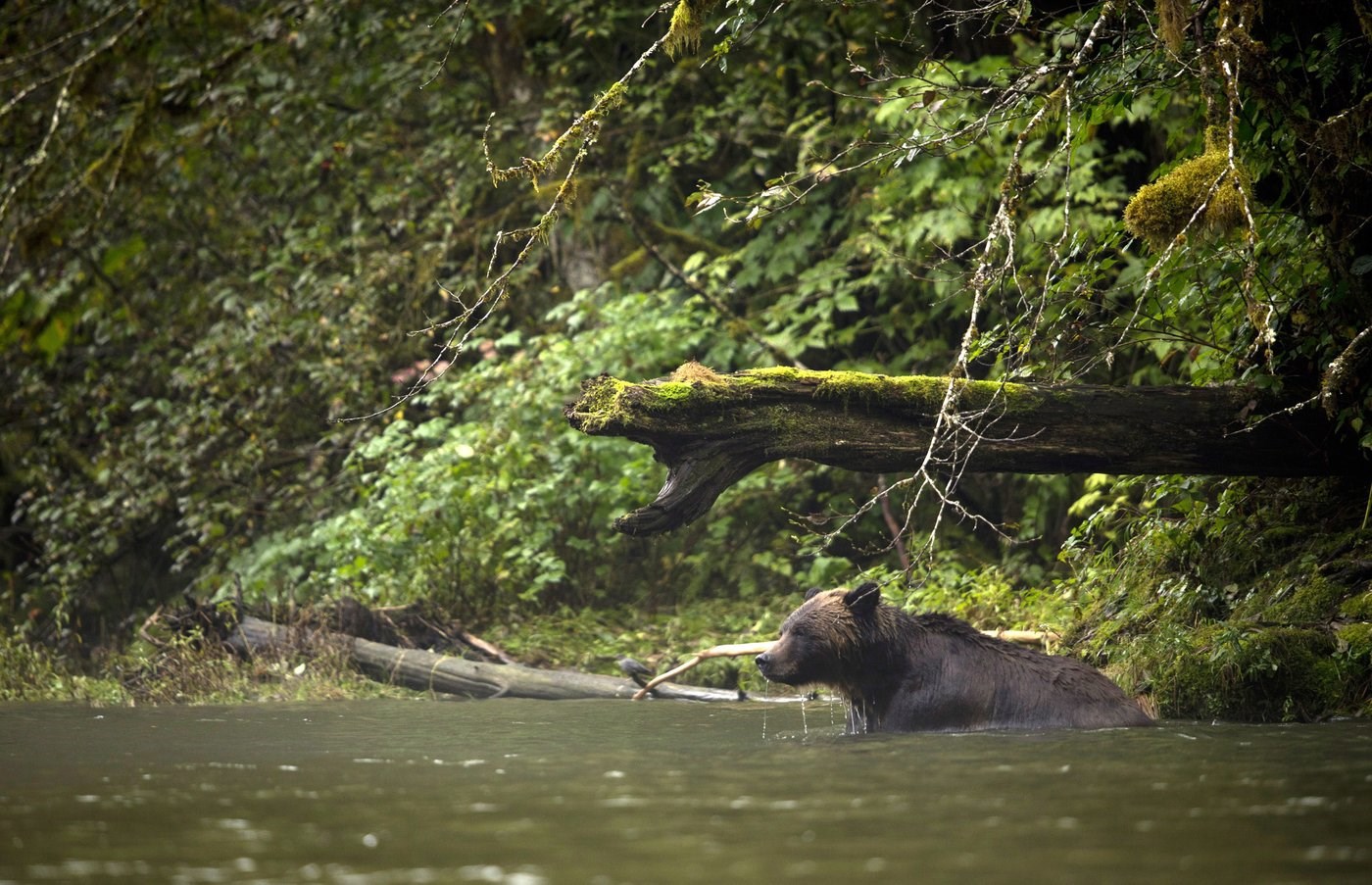
A grizzly bear searches for food as he fishes in Khutze Inlet near Princess Royal Island, B.C. Thursday, Sept, 19, 2013. THE CANADIAN PRESS/Jonathan Hayward
June 16, 2025 - 12:47 PM
VICTORIA — British Columbia's Conservation Officer Service says a grizzly that has stalked people, harassed livestock and damaged property on an island is not a candidate for relocation.
The bear was reported chasing livestock on June 10 and 11 on Texada Island, and the service says they've had several complaints about the same grizzly which has already been moved twice from mainland locations.
The service says it relocated the bear from Gibsons in the first week of September and from Sechelt at the end of the month, and on both occasions it returned to urban areas of the Sunshine Coast within weeks.
More recently, it says the animal spent several days in Powell River breaking into boats at marinas trying to access bait.
On May 22, the service says the grizzly stalked two people walking down a Powell River trail and they only escaped by getting in the water for 30 minutes while it circled back and forth on the shore, where it tore up one of their jackets before leaving.
The service says it's a difficult decision to destroy an animal, but the high level of conflict history and the risk to safety means it is not in the public interest to try to relocate the bear a third time.
It says conservation officers have not set traps and are not actively pursuing the bear, but if the bear's behavior continues to threaten safety, officers "will respond to those situations."
This report by The Canadian Press was first published June 16, 2025.
News from © The Canadian Press, 2025